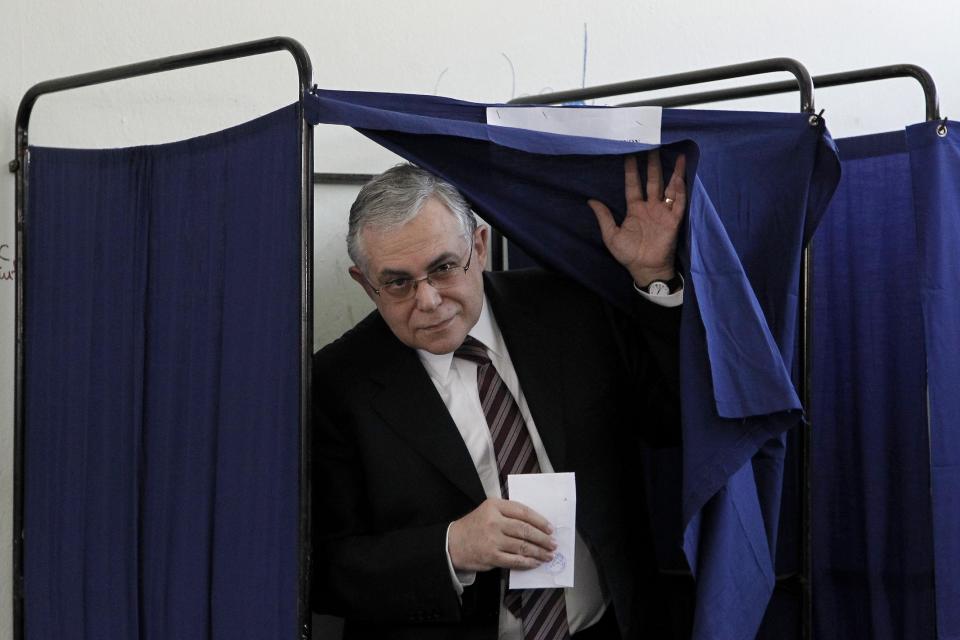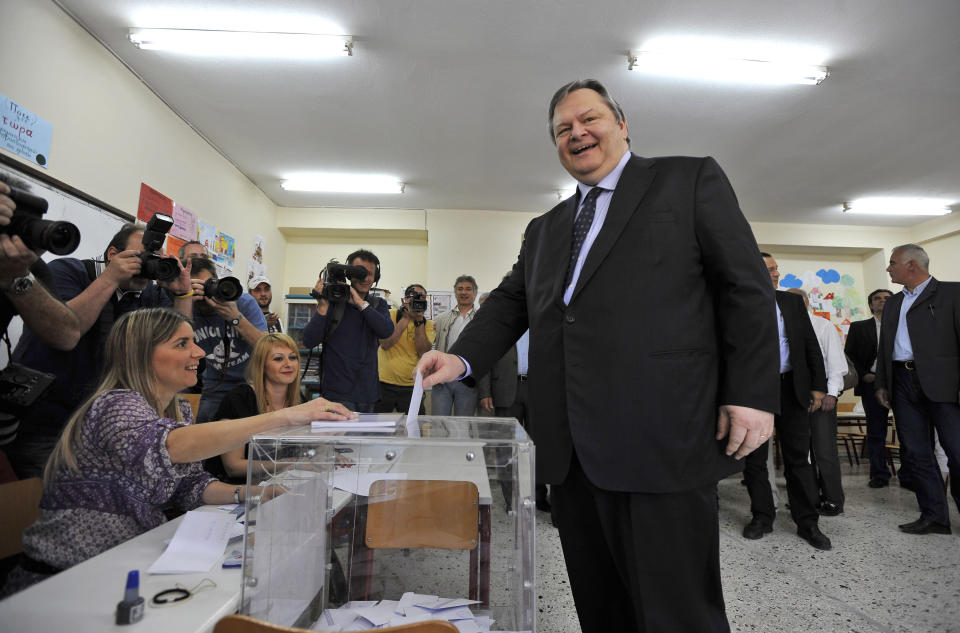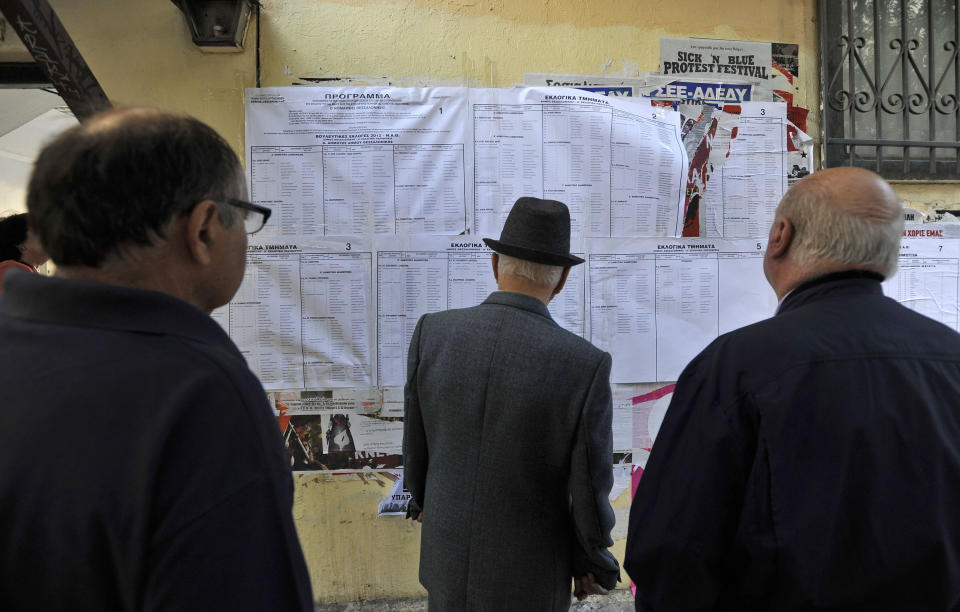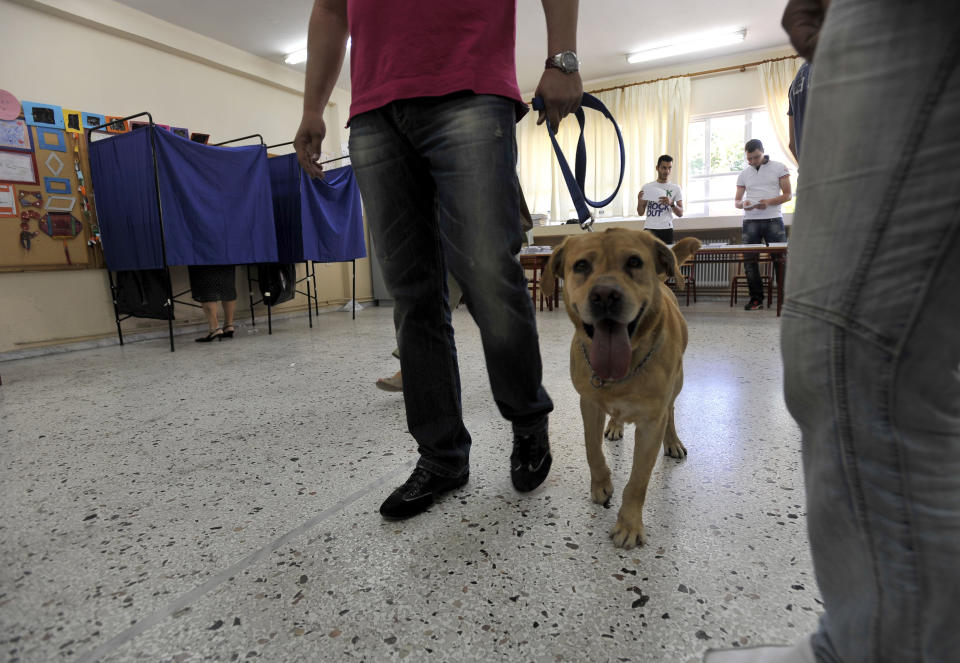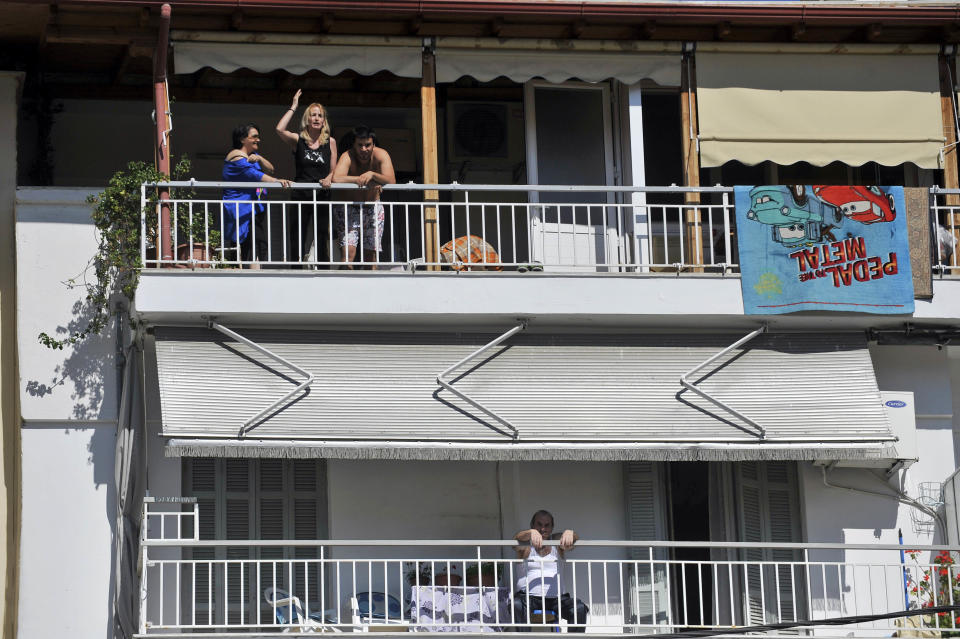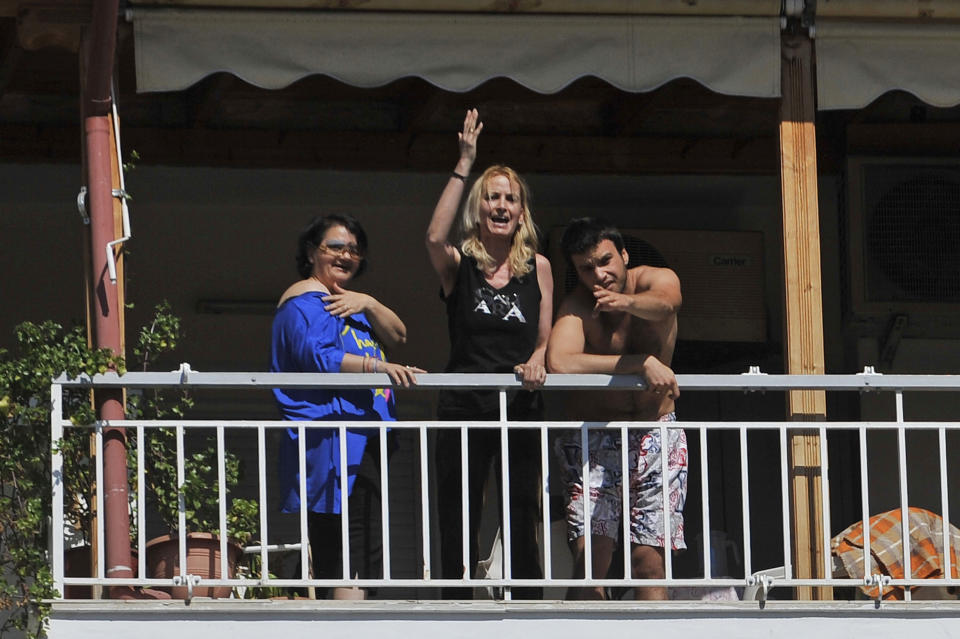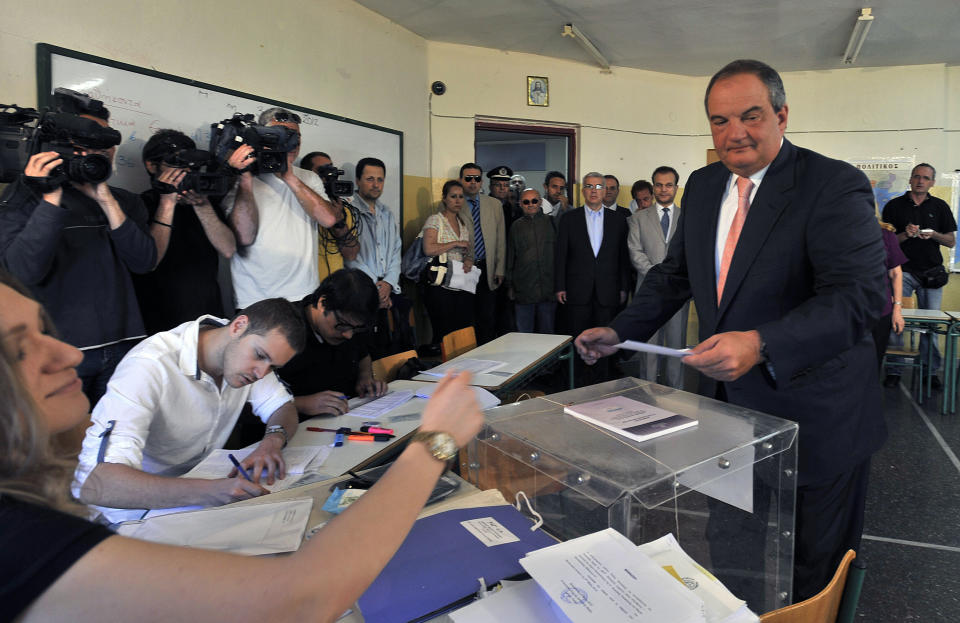Angry Greeks vote in key parliamentary election
ATHENS, Greece (AP) — Greeks hammered by two years of deep spending cuts voted Sunday in a parliamentary election critical to the country's prospects for pulling itself out of a deep financial crisis that has roiled global markets and threatened Greece's position in the eurozone.
Angry voters are broadly expected to punish the two main parties that have dominated the country's political scene for decades. Public opinion polls released before a two-week ban took effect showed both the conservative New Democracy and socialist PASOK parties — the only two major parties backing the terms of the country's multi-billion bailout deals — hemorrhaging support to a constellation of smaller parties, several formed by rebellious deputies.
"We all agree that these elections are perhaps the most crucial," said Prime Minister Lucas Papademos, a technocrat who has headed a PASOK and New Democracy coalition that has governed the country for the past six months. "Today, each of us will weigh and decide not only who will govern the country, but what Greece's course will be for the next decades."
The election is unlikely to produce any clear winner, leaving the party with the most votes to seek coalition partners to form a government. Opinion polls ahead of the vote indicated the leading party would be New Democracy, headed by Antonis Samaras — who has insisted he will not enter into another coalition with his socialist rivals, arguing such an arrangement would require too much haggling to be effective.
The leading party will have three days to form a government, after which the mandate will go to the second party for a further three days, and then to the third party. If none can form a coalition, the country will head to new elections — a prospect that worries Greece's international lenders. If, on the other hand, a government is formed, Parliament will convene on May 17.
"I believe logic will prevail and that there will be a development that will be positive," said one voter, Stelios Papadopoulos, as he cast his ballot in central Athens. "That's what I want to believe. Now whether or not it will happen, I don't know."
The timing is critical. Greece is heavily dependent on billions of euros worth of international rescue loans from other European countries and the International Monetary Fund, and it must impose yet more austerity measures next month to keep the bailout funds flowing and prevent a default and a potentially disastrous exit from the group of nations that use the euro currency.
Thirty-two parties are vying for the support of nearly 10 million registered voters, many of whom were undecided on the eve of the election.
The level of voter turnout will be crucial to the final outcome. In the last national election in October 2009, just over 70 percent of registered voters went to the polls, a low figure by historical standards.
Early indications showed that turnout could be larger this time. Voting is compulsory, but penalties for failing to vote are no longer enforced.
Public anger has been so high that politicians have been forced to maintain low-profile campaigns for fear of physical attacks on the streets in a country battered by business closures and hundreds of thousands of job losses.
Socialist leader and former Finance Minister Evangelos Venizelos, who helped negotiate Greece's bailout and a massive bond swap to reduce national debt, was heckled on his way to a polling station in northern Greece by residents in nearby apartment buildings. Some shouted slogans such as "Thieves Out!"
After voting, Venizelos said the election is the most important development in Greece since 1974, when the nation emerged from a seven-year military dictatorship.
New Democracy's Samaras also emphasized what was at stake.
"The Greek people vote today for the future of their children. ... They vote for stability, growth, security and justice," Samaras said after casting his ballot.
PASOK — which won a landslide victory in 2009 with 43.92 percent and George Papandreou at its helm — has seen its support collapse over the past two years. Opinion polls projected it to win between 14.5 and 19 percent, which would be the lowest since November 1974.
Headed by Venizelos since March, the party is fighting off a strong challenge by anti-bailout left-wing parties such as the Coalition of the Radical Left, or Syriza, led by 38-year-old Alexis Tsipras.
"Today, after two and a half years of barbarism, democracy at last returns to its birthplace," Tsipras said.
Up to an unprecedented 10 parties have been projected to win more than the 3 percent minimum threshold for a parliamentary seat. That includes the extreme right Golden Dawn, which has been riding high on the emotive issue of illegal immigration, promising to clean up crime-ridden, ghetto-like city neighborhoods and mine the country's borders to stop more migrants from getting in.
"People are not choosing smaller parties because they believe in their agendas," political communications expert Spiros Rizopoulos said. "I doubt if anyone has ever read an agenda of a smaller party. It's because they want to protest a decision that has been made" that led Greece into the bailouts and the ensuing austerity.
___
Costas Kantouris in Thessaloniki contributed.
